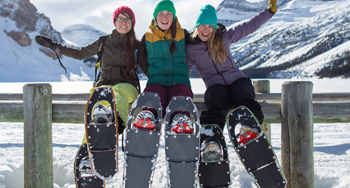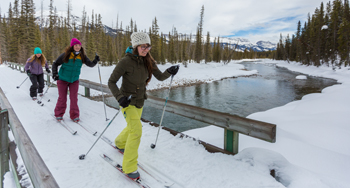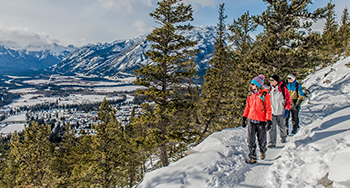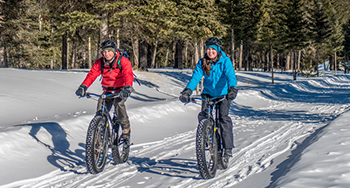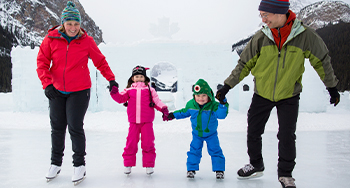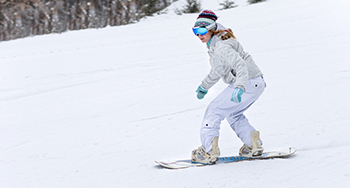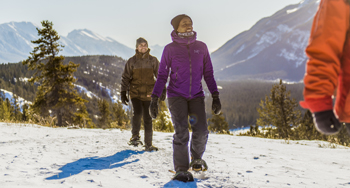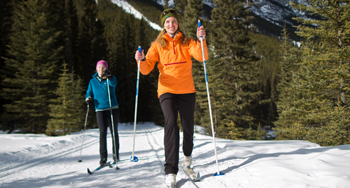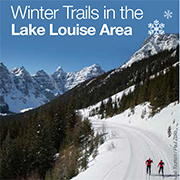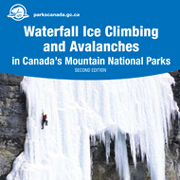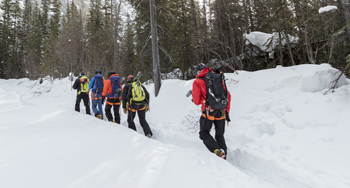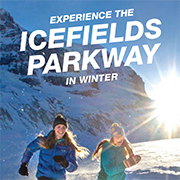
Whether you are here for a family adventure or a relaxing getaway, there is no better way to experience Banff’s pristine mountain landscape than to get out there in the snow. Lace up your boots, wax up your skis, strap on a pair of snowshoes or hop on a fat bike and enjoy one of many winter trails.
Featured activities
Safety is your responsibility!
There are always hazards associated with outdoor recreational activities. Even short trips from the Town of Banff can have serious consequences. Winter hazards include avalanches, disorientation, thin ice, hypothermia and frostbite.
Winter safety
Ice cleats:
Most trails become snow packed and are at risk for slippery sections. Ice cleats are always recommended for winter walking. Check the trail report before heading out.
Banff Legacy Trail:
A winter warning of the Banff Legacy Trail is in effect. Use of the trail is not recommended as it is not maintained in the winter. Hazards may include snow plow debris, closed gates, icy sections and deep snow.
Wildlife:
Although bears hibernate during winter, they can awaken at any time for short periods. Cougars, wolves and other wildlife remain active throughout the year. If you see wildlife, do not approach; give them lots of space and observe from a distance with binoculars or a telephoto lens. If tracks are observed, do not follow them towards the animal. Be alert, make noise and carry bear spray.
Ice Safety:
Parks Canada does NOT monitor natural ice surfaces for safety or mark potential hazards. Many environmental factors affect the thickness of the ice. If you choose to skate on natural ice, you do so at your own risk. The recommended ice thickness is 15 cm for walking or skating alone and 20 cm for skating parties or games.
Caution: Avalanche danger!
Know before you go, don't take the risk! Thousands of avalanches occur throughout Banff National Park every year. Visitors wishing to venture beyond the limits of the trails described in this guide should assume that they are travelling in avalanche terrain and should be prepared with the appropriate knowledge, skills and equipment.
For more information:- Visit parksmountainsafety.ca
- Connect with a Parks Canada Visitor Centre and look for the Avalanche Terrain Ratings brochure
- Consult the current Avalanche Forecast.
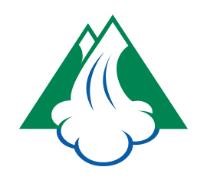
In case of Emergency, call 911 or the Banff Emergency Dispatch Centre.
Note that cell phones are not always reliable throughout the national park.
Plan ahead
Ask for advice at a Parks Canada Visitor Centre for help with trip planning. Visitor Centres offer maps, brochures, permits, backcountry reservations, up-to-date park information, weather, trail, avalanche and road reports, interpretive exhibits and events. Banff Lake Louise Tourism has an office in the Banff Visitor Centre and in the Lake Louise Visitor Centre.
Winter brochures
- Date modified :
